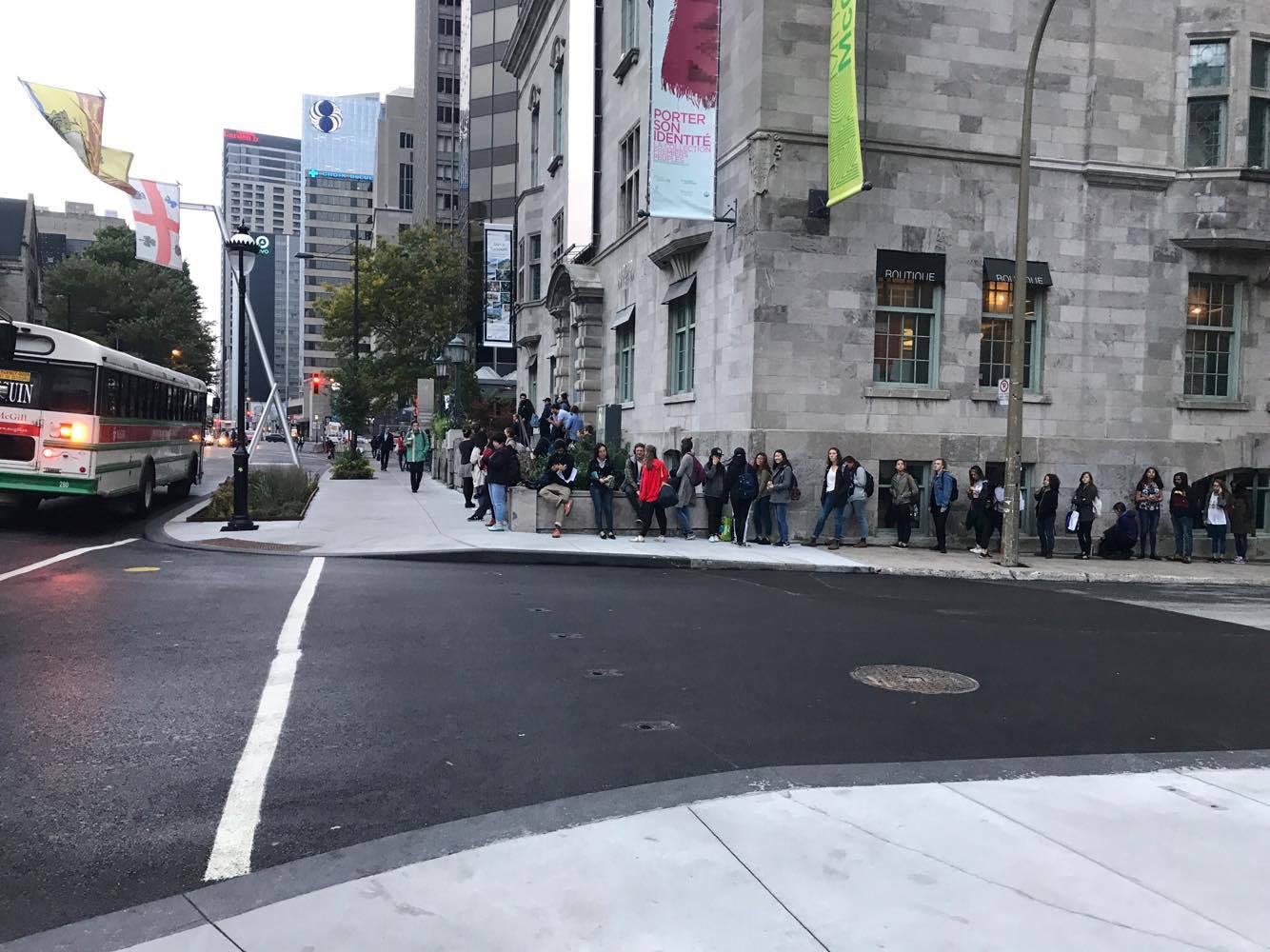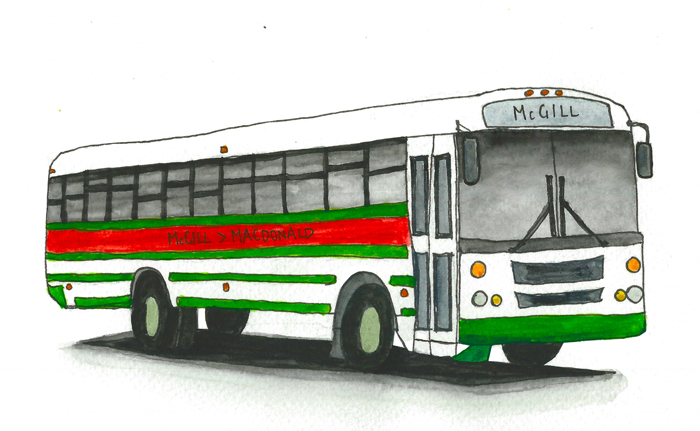At the start of the Fall 2017 term, a number of students claimed to have experienced issues with taking the inter-campus shuttle between McGill’s Downtown and Macdonald campuses due to overcapacity. According to students’ complaints, buses fill up quickly during several periods, sometimes leaving a number of students unable to board despite arriving to the stops on time, or even five minutes early.
"So many students have such bad stories of not getting into the shuttle bus,” Audrey Constance-Wagner, U3 Agricultural and Environmental Sciences, said. “It's really disgraceful. By not putting more shuttle buses, McGill is forcing students to skip class and in consequence their education suffers [….] I've been on it loads of times where a student has begged the bus driver to be let on because they have an exam, and they don't get let in cause there's no room.”

Some students resort to leaving class early to ensure a spot on the bus. Those unable to get a seat are often left with no choice but to take the next shuttle, which typically comes over 30 minutes later. In this scenario, students risk being late to their next classes, or missing them entirely.
“We have to be there really early so we can get on one, because if we miss [the bus], the next one is an hour later,” Helene Truong, U1 Agricultural and Environmental Sciences, said. “A lot of people leave class 10 minutes early [at 5:15 p.m. ] to catch the 5:45 [p.m.] bus. This really disturbs the class for those who stay those 10 minutes.”
In an email to The McGill Tribune, Dean of the Faculty of Agricultural and Environmental Sciences (AgEnvSc) Anja Geitmann confirmed that the administration has taken note of students’ complaints. She also mentioned a pattern each term, in which student complaints spike during the start of semester and subside after the add-drop period.
“We are acutely aware of [the bus capacity issue], and are monitoring the situation,” Geitmann wrote. “We anticipate that the situation will again equilibrate once students have finalized their schedules [….] While we wish to provide satisfactory service to students and staff […] we also would like to avoid almost empty buses circulating, as this would not be ecologically responsible.”
According to Geitmann, shuttle overcapacity is not a new problem, but rather, something that the faculty and students have been dealing with for years. Prior to spring 2016, there were only four buses doing rounds between the Downtown and Macdonald campuses despite a continuously increasing number of students in AgEnvSc over the last 10 years. This changed when Geitmann requested Provost and Vice-Principal Academic Christopher Manfredi to budget for more buses.
“By Spring 2016, I was able to convince the new Provost [Manfredi] to liberate the budget for a fifth bus, or, in other words, an increase in capacity of 25 per cent,” Geitmann wrote.
Further, during summer 2016, ceiling rails were installed on the five buses, helping passengers stand in the aisles while safely holding on to a railing for support. This change increased the volume of passengers allowed on each shuttle from 48 to 60. According to Geitmann, this was an adequate solution because the faculty received almost no complaints in the 2016-2017 academic year.
Some of this semester’s resurfacing student criticisms of the shuttle bus have been raised to the Macdonald Campus Students’ Society (MCSS). President Jade Corriveau confirmed that this topic is being discussed with the administration, but it is not the only issue on their agenda.
“It is important to keep in mind that the shuttle situation is far from being the only problematic thing that Macdonald students face and that MCSS fights for,” Corriveau said. “There are other important issues that the administration is trying to tackle and they also take time and resources.”









